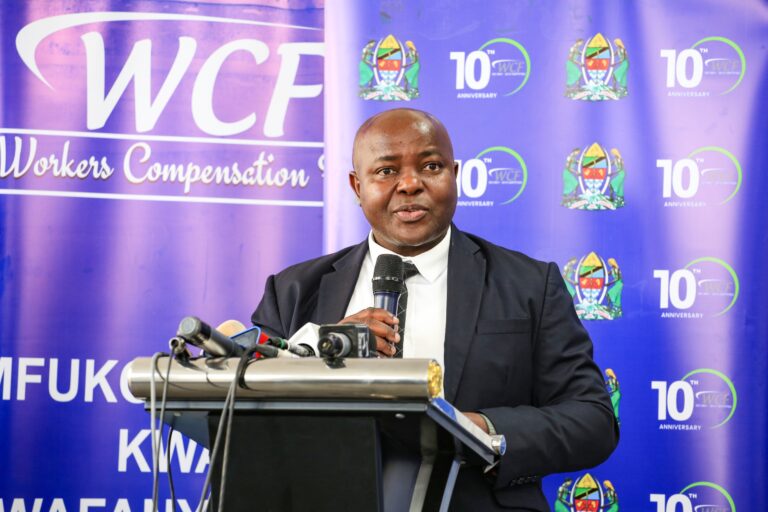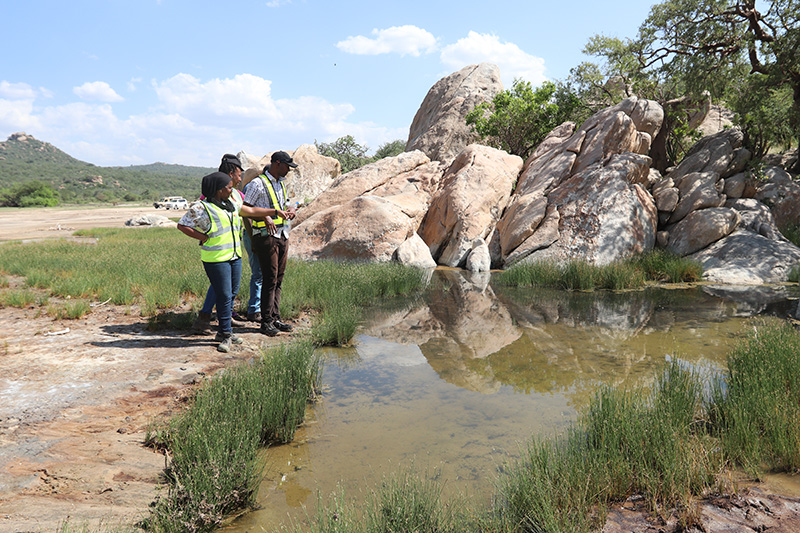Dar es Salaam. The Workers Compensation Fund (WCF) has recorded significant financial growth, with its value rising from Sh445.3 billion in the 2020/21 financial year to Sh748 billion currently.
WCF director general, Dr John Mduma, told journalists during a media briefing in Dar es Salaam on May 15, 2025, that the Fund’s value is projected to reach Sh766.6 billion by the end of the 2024/25 financial year.
“This growth reflects prudent financial management and sound investment strategies that ensure the Fund remains strong and capable of fulfilling its mandate,” Dr Mduma said.
He further noted that a recent assessment by the International Labour Organization (ILO) confirmed the Fund’s long-term sustainability, with resilience projected for at least the next 30 years.
“This endorsement from the ILO gives confidence to both contributors and beneficiaries regarding the Fund’s ability to meet its obligations well into the future,” he added.
Established under the Workers Compensation Act No. 20 of 2008 and operational since 2015, WCF functions under the Prime Minister’s Office – Labour, Youth, Employment and Persons with Disabilities.
Dr Mduma highlighted a range of reforms introduced since the beginning of the Sixth-Phase Government, including the reduction of contribution rates for private sector employers from one percent to 0.5 percent of monthly payroll.
“This adjustment aligns private sector contributions with those of the public sector, aiming to reduce the cost of doing business while maintaining adequate protection for workers,” he explained.
In addition, the Fund implemented a waiver on interest penalties for delayed payments, reducing the monthly rate from 10 percent to 2 percent during the period between October 1, 2017 and August 31, 2021.
Dr Mduma also pointed to the introduction of a minimum compensation amount of Sh275,702.83 for workers suffering non-fatal, non-total disabilities, ensuring a fair baseline for affected employees.
The Fund’s benefits package now includes seven categories: medical assistance with no ceiling, temporary and permanent disability compensation, dependants’ pensions, attendants’ allowance, rehabilitation support, and funeral assistance.
Technological advancement remains a cornerstone of WCF’s operations, with over 90 percent of services now offered online, which the director general said has enhanced transparency, reduced bureaucracy, and improved efficiency.
“Our digital transformation has enabled faster service delivery and increased accessibility for both employers and workers,” Dr Mduma stated.
The Fund has also received notable recognition, including ISO certification in June 2024, second place in the 2025 e-Government Agency Awards, and third place in the TEHAMA Awards for excellence in ICT adoption.
Employer registration has surged by 48 percent, from 51,847 in 2020 to 76,790 in 2024, supported by intensified awareness campaigns on workers’ rights and workplace safety.
Since the start of the Sixth-Phase Government, a total of 19,650 workers and dependants have received compensation, reinforcing the Fund’s role as a social safety net.
Despite progress, Dr Mduma cautioned that some employers still fail to comply with legal requirements to register and remit contributions.
“We urge all employers to meet their statutory obligations to ensure that workers are fully protected,” he said, reassuring the workforce of WCF’s unwavering commitment.
“The Fund remains stable, responsive, and ready to support all employees entitled to compensation,” he said.







